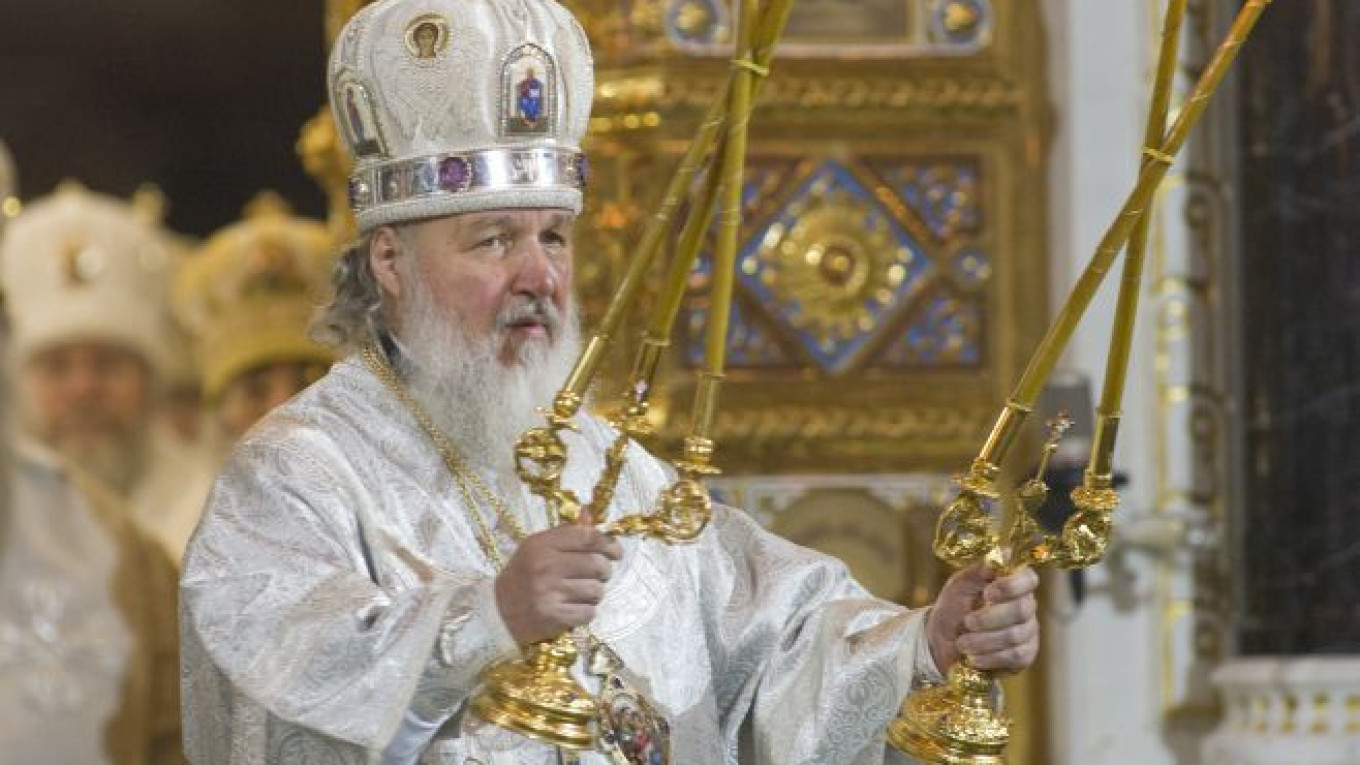Not much in modern Russia surprises me anymore, but last week I got a real shock: Russian Orthodox Patriarch Kirill warmly congratulated Communist Party leader Gennady Zyuganov on the occasion of his 70th birthday and presented him with the church's highest order.
"As one of the most prominent politicians of modern Russia, you strive to look after the welfare of the people and protect traditional moral values," the patriarch wrote. "I hope that in the future your fruitful activity will help promote socially significant initiatives and the moral transformation of society."
I would like to remind our friend the Patriarch that a communist dictatorship killed tens of thousands of Russian Orthodox priests and sent hundreds of thousands to labor camps. That does not even include the countless Soviet laypeople who were imprisoned or killed for their faith.
Zyuganov has portraits of Vladimir Lenin and Josef Stalin hanging above his desk, portraits of men who personally signed orders to destroy churches and execute believers. But perhaps the modern-day leader of the same party once led by Lenin and Stalin has had a change of heart and said something about the "blunders" or "wrongdoings" of his predecessors.
Nothing of the sort. Zyuganov remains the same diehard Marxist he always was.
The only explanation is that Patriarch Kirill so venerates Soviet-era leaders and history that he willfully closes his eyes to the darkest pages of his country's past, even when those tragedies concern the Orthodox Church.
The Bolsheviks did not formally ban the church, they simply "separated it from the state." But in a country where the state controlled everything, this meant that people of faith were denied access to ordinary jobs. Even if they did manage to land a desirable post, they were denied opportunities for career advancement. Back when I studied at the Moscow State University, I twice saw school authorities expel students for the "crime" of attending church. After all, a normal, self-respecting Soviet citizen should be an atheist.
The Soviet authorities enshrined atheism in a thousand different laws. For example, the Bolsheviks adopted a decree on marriage in December 1917 that prohibited church marriages.
And right up until 1991, any Soviet citizen who got married in a church or baptized a child in a church shouldered a serious risk. Party members would be expelled, while ordinary workers faced dismissal. And even with all of the attempts at change that former Soviet leader Mikhail Gorbachev undertook with his "perestroika" during the final years of the Soviet Union, the intolerance to churches and those who visit them remained unchanged.
But the Orthodox Church has become an influential force under President Vladimir Putin. Nobody speaks of "separating the church from the state" anymore, although that principle is clearly enunciated in the Russian Constitution. The Moscow patriarch is Putin's greatest cheerleader.
Now, in place of lessons on atheistic communism, school students study the Russian Orthodox faith, institutes devoted to the hard sciences have introduced theology departments, and Orthodox priests are on hand to give their blessing at every ship and rocket launch.
But in the authorities' view, and perhaps even from Zyuganov's perspective, such behavior is normal and even right.
Andrei Malgin is a journalist, literary critic and blogger.
A Message from The Moscow Times:
Dear readers,
We are facing unprecedented challenges. Russia's Prosecutor General's Office has designated The Moscow Times as an "undesirable" organization, criminalizing our work and putting our staff at risk of prosecution. This follows our earlier unjust labeling as a "foreign agent."
These actions are direct attempts to silence independent journalism in Russia. The authorities claim our work "discredits the decisions of the Russian leadership." We see things differently: we strive to provide accurate, unbiased reporting on Russia.
We, the journalists of The Moscow Times, refuse to be silenced. But to continue our work, we need your help.
Your support, no matter how small, makes a world of difference. If you can, please support us monthly starting from just $2. It's quick to set up, and every contribution makes a significant impact.
By supporting The Moscow Times, you're defending open, independent journalism in the face of repression. Thank you for standing with us.
Remind me later.


